PLTW Human Body Systems - Chapters 4.1.1 to 4.1.5
1/41
There's no tags or description
Looks like no tags are added yet.
Name | Mastery | Learn | Test | Matching | Spaced |
|---|
No study sessions yet.
42 Terms
homeostasis
the maintenance of stable internal conditions required for optimal functioning
urine
waste material secreted by the kidney, rich in end products of protein metabolism
kidney
filter blood, regulate fluid volumes, produce urine
ureter
smooth muscular tubes with mucosal backflow valves; transport urine from the kidney to the bladder
bladder
hollow and muscular, primarily in the pelvic cavity but can expand into the abdominal cavity; holds urine before voiding
urethra
1-2 inches in females, 8 inches in males; carries urine from the bladder to the outside of the body
urology
branch of medicine that monitors the health of the urinary system
renal pelvis
central collecting region in the kidney
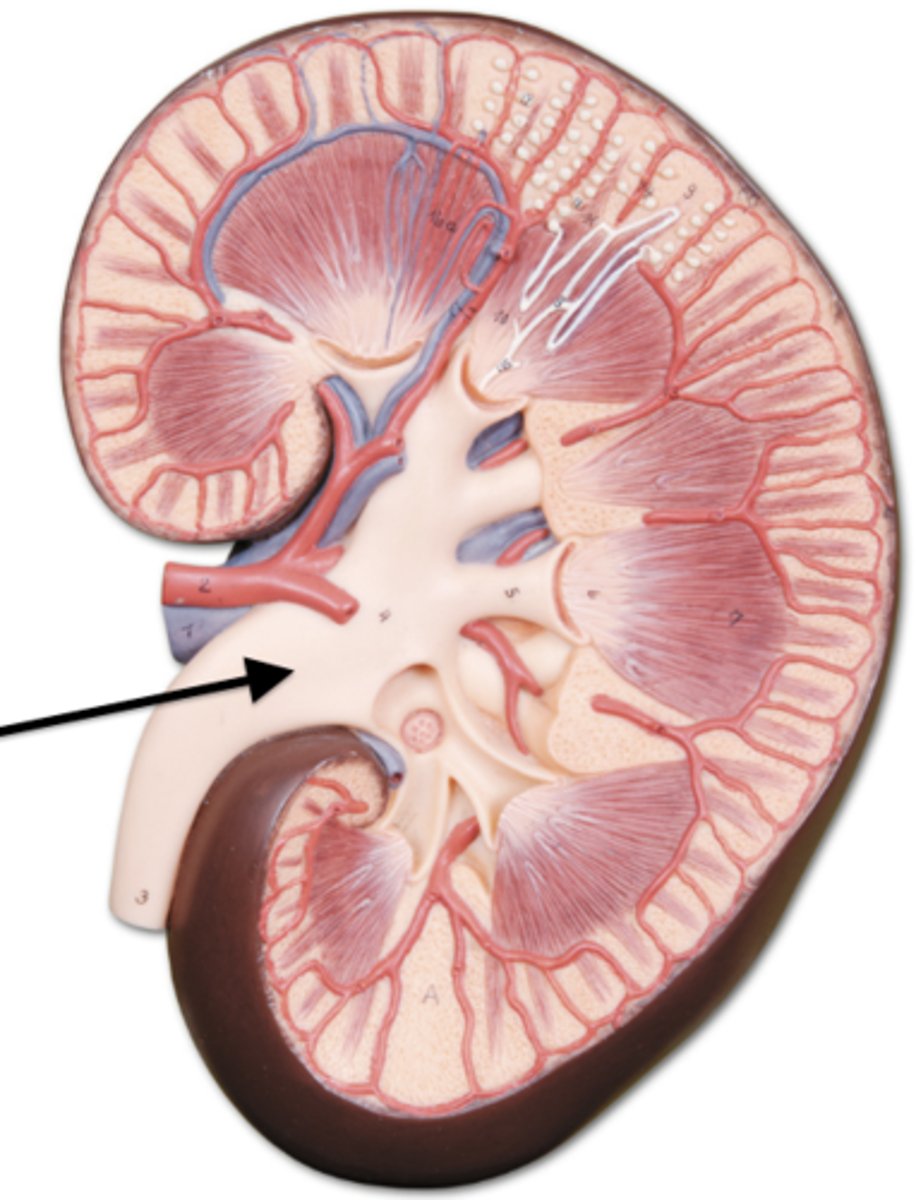
renal medulla
inner portion of the kidney
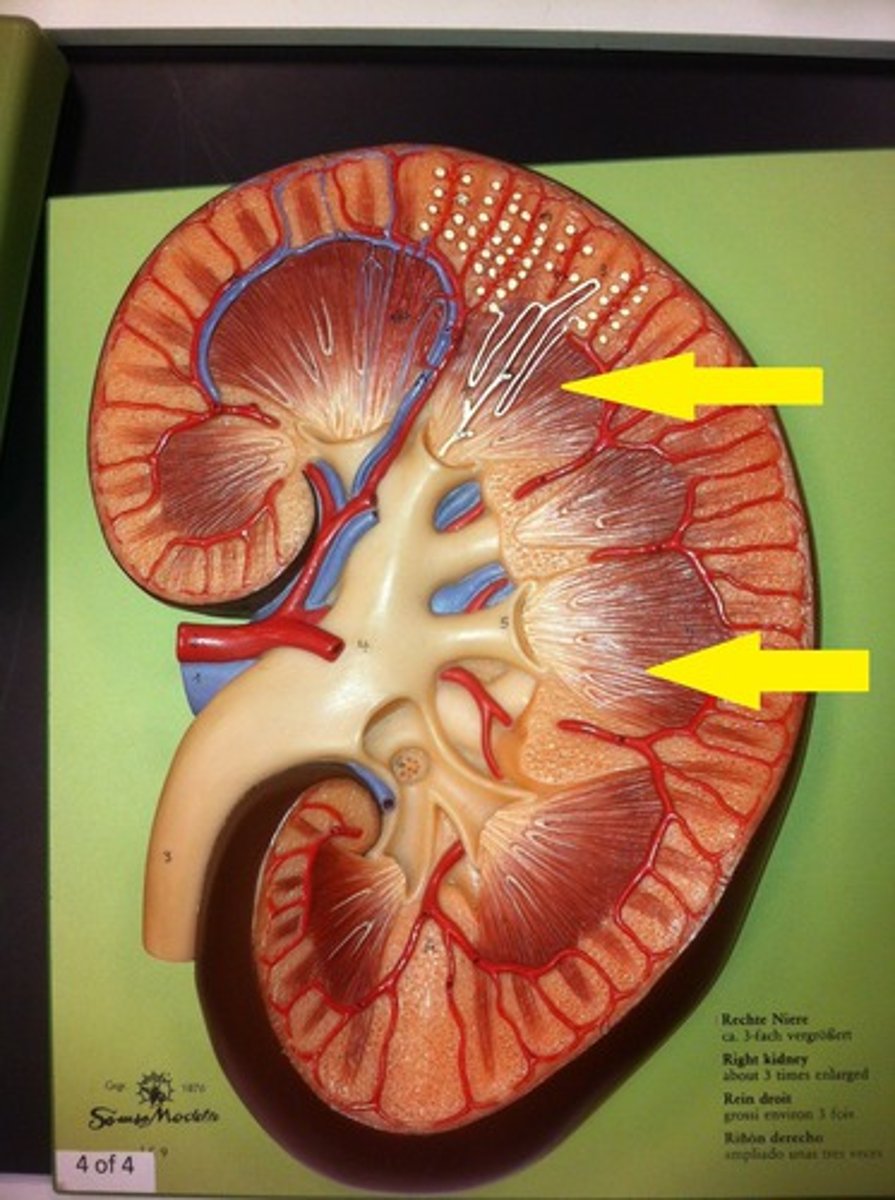
renal cortex
outer region of the kidney
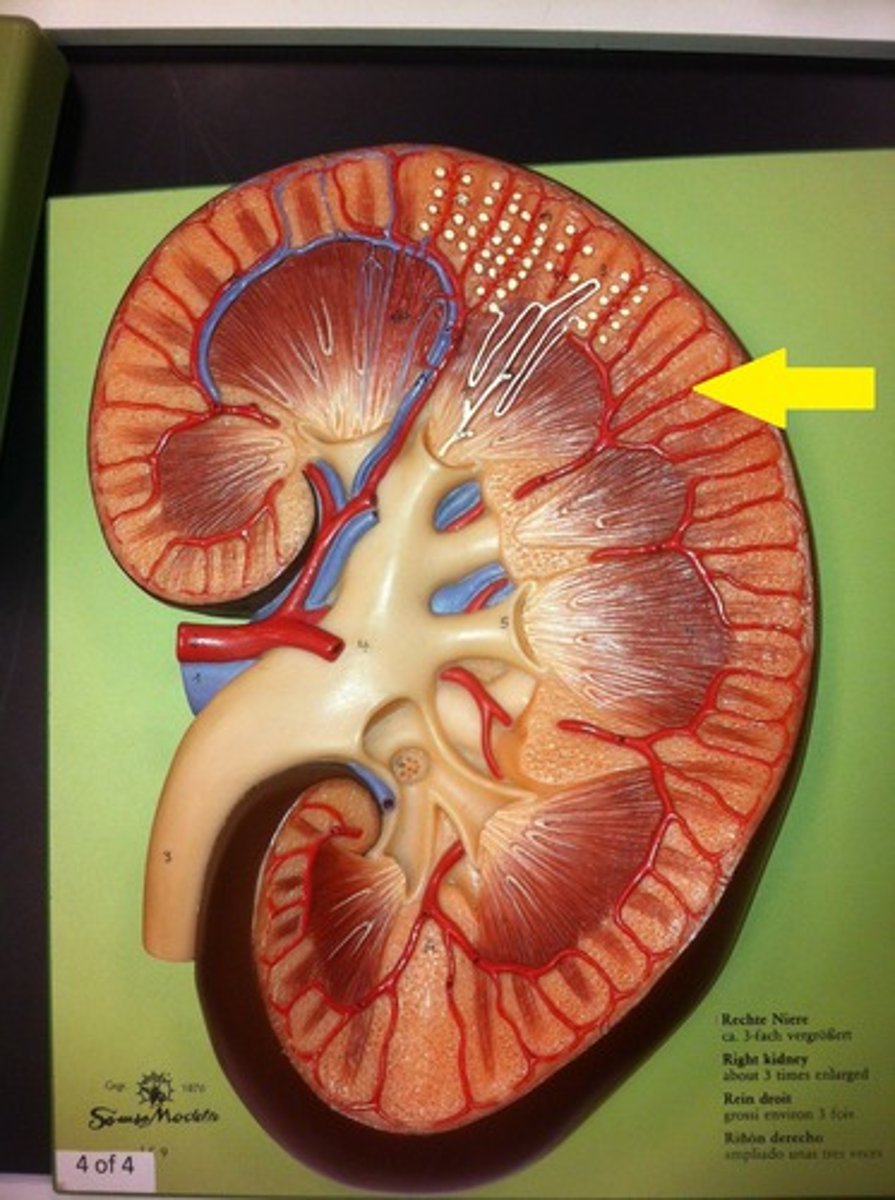
medullary pyramid
triangular, cone shaped divisions within the medulla
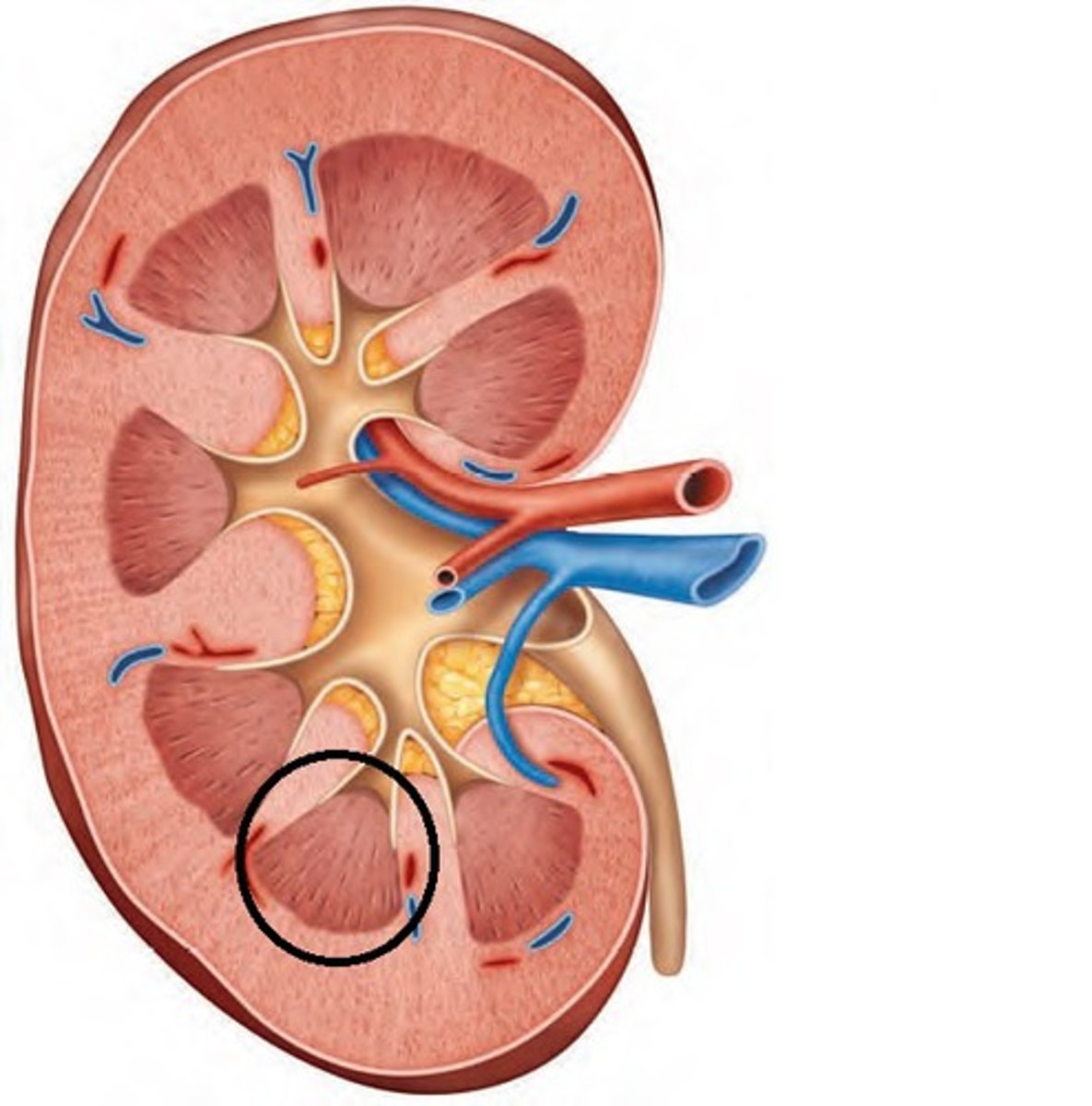
renal column
area of cortical tissue running between the medullary pyramids
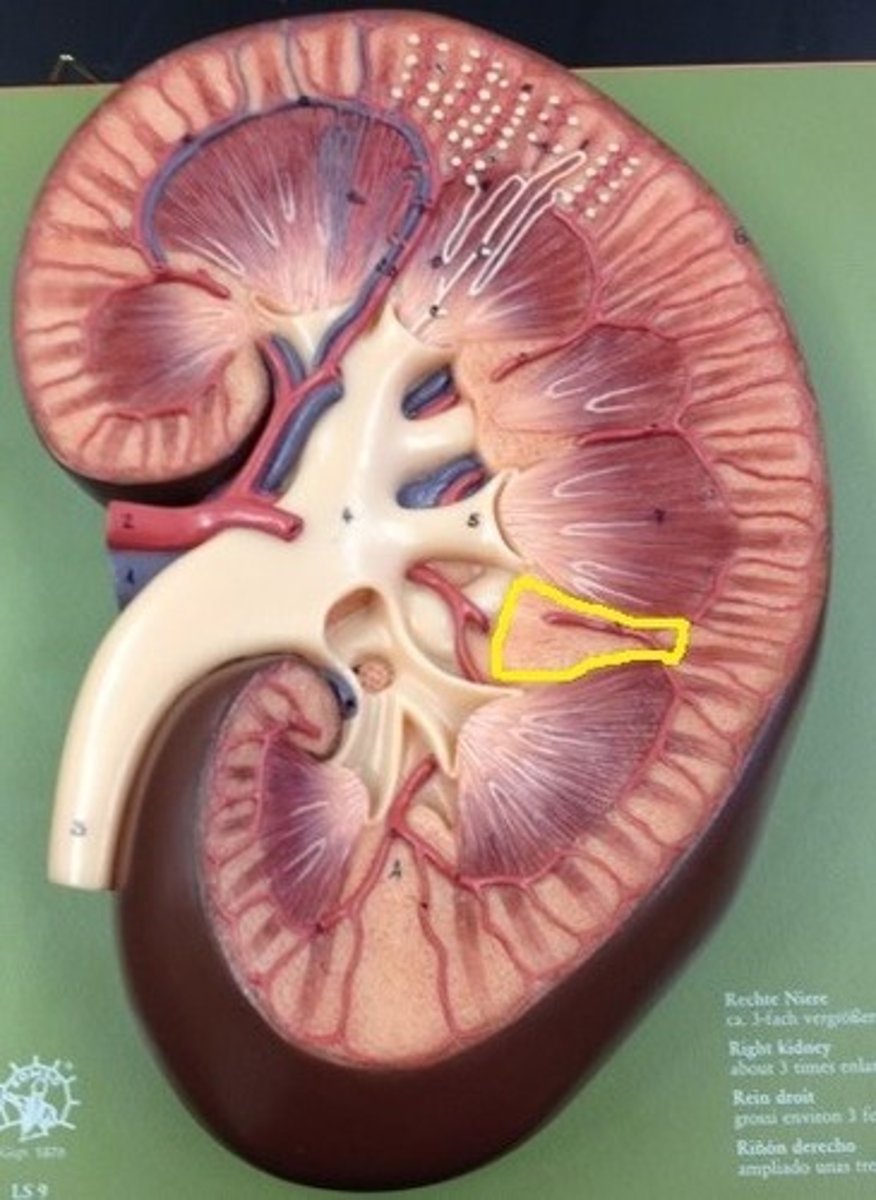
major calyx
formed by four or five minor calyces
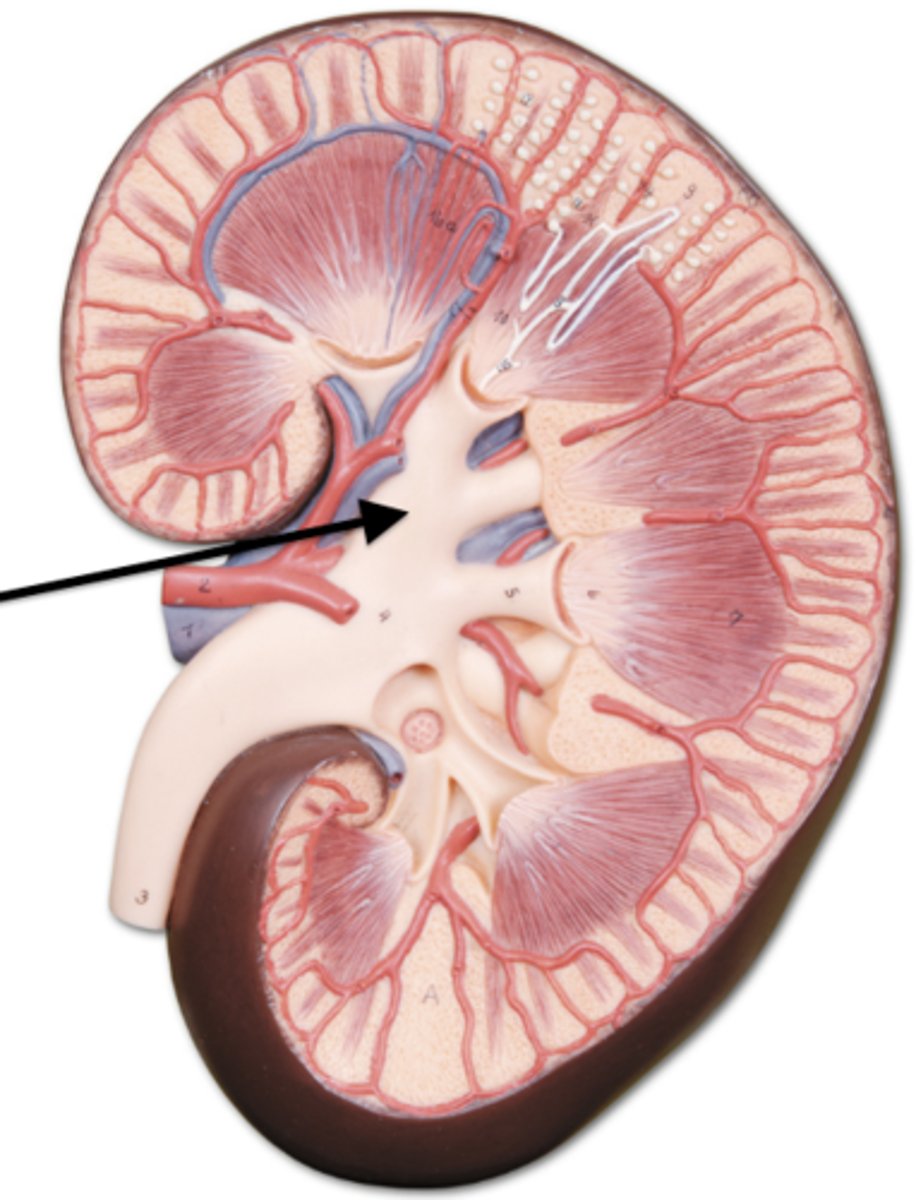
minor calyx
ducts coming off the pyramids
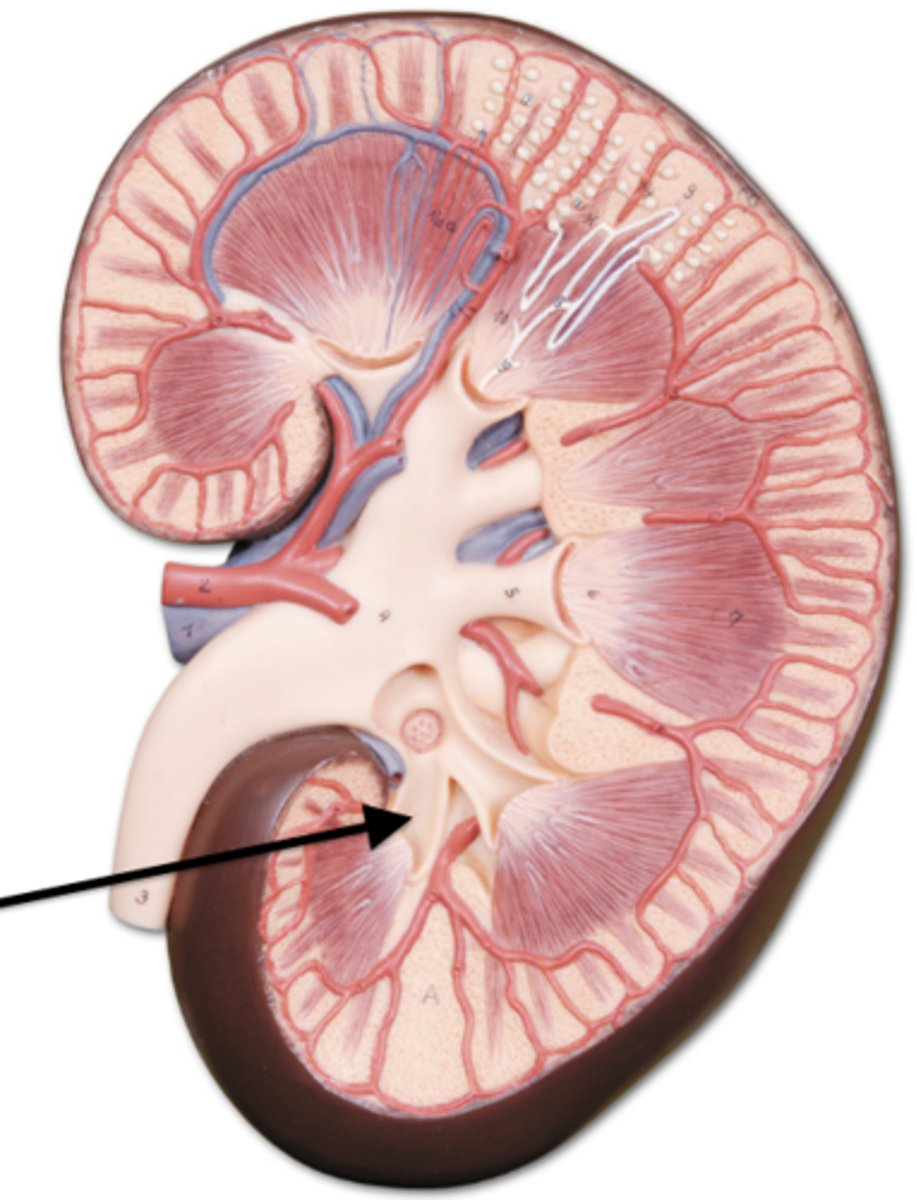
renal capsule
covers the kidney
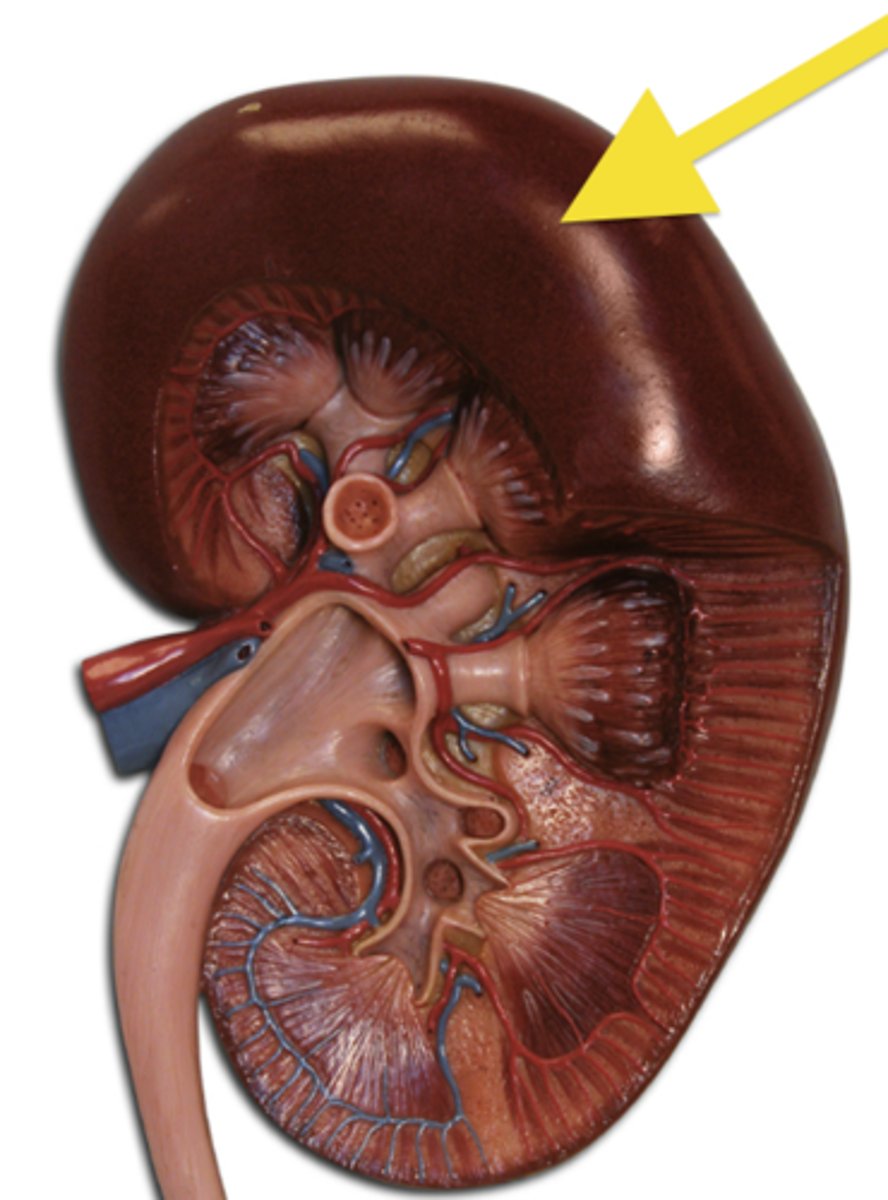
nephron
tubular excretory unit of the vertebrate kidney
glomerulus
small network of capillaries encased in the upper end of a nephron; where the filtration of blood takes place
loop of henle
section of the nephron tubule that is responsible for conserving water and minimizing the volume of the filtrate
convoluted tubules
substances needed by the body are reabsorbed into the bloodstream
bowman's capsule
cup-shaped structure of the nephron of a kidney which encloses the glomerulus and which filtration takes place.
models
an accurate representation of an object or phenomenon
abstraction
reducing to essential characteristics
glomerular filtration rate
amount of fluid and dissolved substances both kidneys are capable of filtering per minute
tubular reabsorption
movement of substances from the tubular fluid of the nephron back into the blood
tubular secretion
the movement of substances from the blood into the tubular fluid of the nephron
algorithm
procedure used for solving a problem or performing a computation
decision tree
framework using if/then statements to make consistent classifications of data
demographics
statistics describing populations and their characteristics, including age, sec, education, nationality, ethnicity, and religion
homogenous
the same or alike
resuscitation
return of consciousness
donation chain
begins with an altruistic donor, and connects families of individuals in organ failure that have relatives not matching but willing to donate
vasodilation
widening of blood vessels as a result of the relaxation of muscular walls
nephrologist
medical doctor specializing in the kidneys; performs physical exams, imaging tests, and chemical labs
polycystic kidney disease
a genetic disorder characterized by the growth of numerous fluid-filled cysts in the kidneys
gross examination
taking note of features and abnormalities of samples with the naked eye
polymerase chain reaction
lab technique for amplifying DNA in-vitro
restriction enzymes
degradative enzyme that recognizes and divides nucleotides at specific genome sequences
gel electrophoresis
separation of nucleic acids or proteins on the basis of their size and electrical charge
urinalysis
macroscopic, chemical, and microscopic analysis of urine
macroscopic analysis
visual determination of color and clarity
chemical analysis
tests for pH, specific gravity, protein content, glucose content, and ketones
microscopic analysis
tests for presence of non-urinary cells such as leukocytes, erythrocytes, and epithelial cells